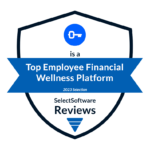Prior to the COVID-19 crisis, 30% of Americans reported that they had more debt than was manageable. The economic impact of COVID-19 has led Americans to seek credit at increasing rates, with 43% of U.S. Adults reporting that they, or someone in their household has lost a job or taken a pay cut due to the pandemic. These individuals are highly susceptible to becoming victims of predatory lending, dropping them into spirals of deepening debt.
How COVID-19 increased financial stress
The number of vulnerable families has grown exponentially as the pandemic continues to wreak economic havoc. Among lower-income adults, 52% of households have been impacted, and 53% of lower income earners said they couldn’t pay their April 2020 bills. More than half of adults say they don’t have rainy day funds set aside, and 71% say they wouldn’t be able to cover their expenses for three months by borrowing money, using savings, selling assets, or borrowing from friends or family.
People desperately need solutions to help them through financial adversity, and it’s in employers’ best interest to help them. Not only is financial stress associated with higher employee turnover, and decreased productivity, it also increases employers’ healthcare spending because financial issues are a major cause of healthcare noncompliance and stress-related illnesses.
Workers need more help, not fewer protections
Unfortunately, financially fragile employees and their families are more likely to find predators than helpers as a consumer. Payday lenders have historically found crises such as the pandemic as opportunities for profit. In fact, they have fought to be declared “essential businesses” during the COVID-19 crisis, so that they can stay open and offer high interest loans to the increasing number of families in financial need. In response, the Center for Responsible Lending has called on Congress to enact consumer protections including capping rates on payday, car title, and other loans at 36%. They warn, “Without protections, payday lenders will siphon away the stimulus income assistance, unemployment insurance benefits, and declining wages of these already struggling workers.”
Unfortunately, the Consumer Financial Protection Bureau (CFPB) has now weakened protections against predatory lending. Alex Horowitz, senior research officer with Pew Charitable Trust’s consumer finance project, put it this way: “By eliminating the ability-to-repay protections, the CFPB is making a grave error that leaves the 12 million Americans who use payday loans every year exposed to unaffordable payments at annual interest rates that average nearly 400%.”
An investigation by the Wall Street Journal involving hundreds of online searches showed that these high-cost lenders are marketing loans that typically carry annual percentage rates of 200% to 500% to consumers looking online for financial help. While online platforms like Facebook and Google say they have banned advertisements for payday loans, lenders have found backdoor ways to get individuals in need to their websites.
What can employers do to keep employees safe from predatory financial practices?
Families desperately need sound advice, access to capital to help them avoid predatory fees, and support to create sustainable plans to manage finances and minimize the long-term impacts on their finances. Employers have a role to play because they stand to be negatively impacted, too. Not only does high-cost lending lead to increased debt, it adds measurable stress to families, negatively impacting their health and overall well-being, compromising their ability to be focused on work and family, and ultimately creating a damaging ripple effect across society, the workplace, and the economy.
They can provide resources which will advise employees with no motive to profit from helping. At Brightside, we provide unbiased financial guidance as a corporate benefit to employees and their families. In fact, if our financial partners provide a “kickback” for referring someone to their services, we put that money directly into the hands of the people we’re helping and call it a KickForward. Employees can have peace of mind that they’re receiving financial assistance with only their best interests at heart.
Providing personalized Financial Care to employees doesn’t just mean helping them to avoid predatory lending. It also means helping them to build savings, improve credit scores, meet personal financial goals, plan for retirement, and get out of debt. Sometimes, it means helping them find child care subsidies so they can get to work; helping to prevent eviction or vehicle repossession; or helping them find ways to afford the healthcare they need. These issues are complex and employees can become so overwhelmed by their personal financial situation that they can’t make it to work. Or, even when they’re at work, they may be so anxious and distracted that they can’t perform to their best ability.
Supporting employees with Financial Care is a root-cause solution. Nearly every aspect of employee well-being has dependencies on financial health. Whether an employee is struggling with food and housing, healthcare, education, emergencies, or long-term planning, there is no more impactful way to support and empower them than by providing Financial Care.
Connect with us and learn more about how adding Financial Care to your portfolio of employer benefits can support your employees’ financial health.





